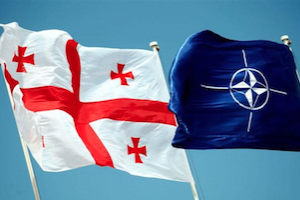
Levan Mikeladze Foundation for the Caucasus Studies
and
Central Asia-Caucasus Institute at Johns Hopkins SAIS
invite you to participate in the conference
Strategic Pillars of Security for Georgia:
Trans-Atlantic Integration, Economy, Democracy
Thursday, May 12, 2016
1:00 pm - 7:00 pm
Kenney Auditorium
Paul H. Nitze School of Advanced International Studies
1740 Massachusetts Ave, NW, 20036
Washington, DC
Conference Program
1:00 – 1:15
Registration / Check-in
1:15 – 1:30
Welcome: Mamuka Tsereteli, Central Asia-Caucasus Institute
Tina Mikeladze, Levan Mikeladze Foundation for Caucasus Studies
1:30 – 3:00
Georgia and Strategic Environment in the Black Sea-Caspian Region
Moderator: S. Enders Wimbush, Founder, Stratevarious/Member of the Advisory Board, LMF
Discussants: Kurt Volker, McCain Institute, Former US Ambassador to NATO
James MacDougall, Professor, National War College
Amb. William Courtney, Former US Ambassador to Georgia
Amb. Archil Gegeshidze, Ambassador of Georgia to the US
Svante Cornell, Director, Central Asia-Caucasus Institute
Job Henning, Fellow, Truman National Security Project
Glen Howard, President, Jamestown Foundation
Brenda Shaffer, Visiting Professor, Georgetown University
3:00 – 3:45
Remarks: Bridget Brink, Deputy Assistant Secretary of State
David Bakradze, State Minister of Georgia on European and Euro-Atlantic Integration
David Dondua, Deputy Minister of Foreign Relations, Georgia
3:45 – 4:00 Coffee Break
4:00 – 5:30
Internal Factors of Security in Georgia: Conflicts, Economy, Democracy
Moderator: Elizabeth Kvitashvili, President, Georgian Association in the USA
Discussants: Stephen Nix, Director for Eurasia, IRI
Melissa Muscio, Senior Manager, Caucasus and Central Asia, NDI
Jeffrey Mankoff, Senior Fellow, CSIS
George Khelashvili, DCM, Embassy of Georgia
Danica Starks, Policy Team Director for Eurasia, Dept. of Commerce
Kenneth Angell, Managing Director, SMEF, OPIC
Eftychis Gregos-Mourginakis, Executive Director, America-Georgia Business Council
Miriam Lanskoy, Senior Director for Eurasia, National Endowment for Democracy
David Soumbadze, Director, Rumsfeld Fellowship Program, CACI/LMF
5:30 - 5:45
Closing Remarks: S. Frederick Starr, Chairman, Central Asia-Caucasus Institute
5:45 – 7:00
Closing Reception, sponsored by Georgian Association in the USA
Georgian Association Annual Award Ceremony with Co-chairs of the Georgia Caucus in the House of Representatives: Congressman Ted Poe, R-Texas, Congressman Gerry Connolly, D-Virginia
Please register using this link.
Click here to sign up for CACI Forum mailing list
Visit CACI on Facebook


